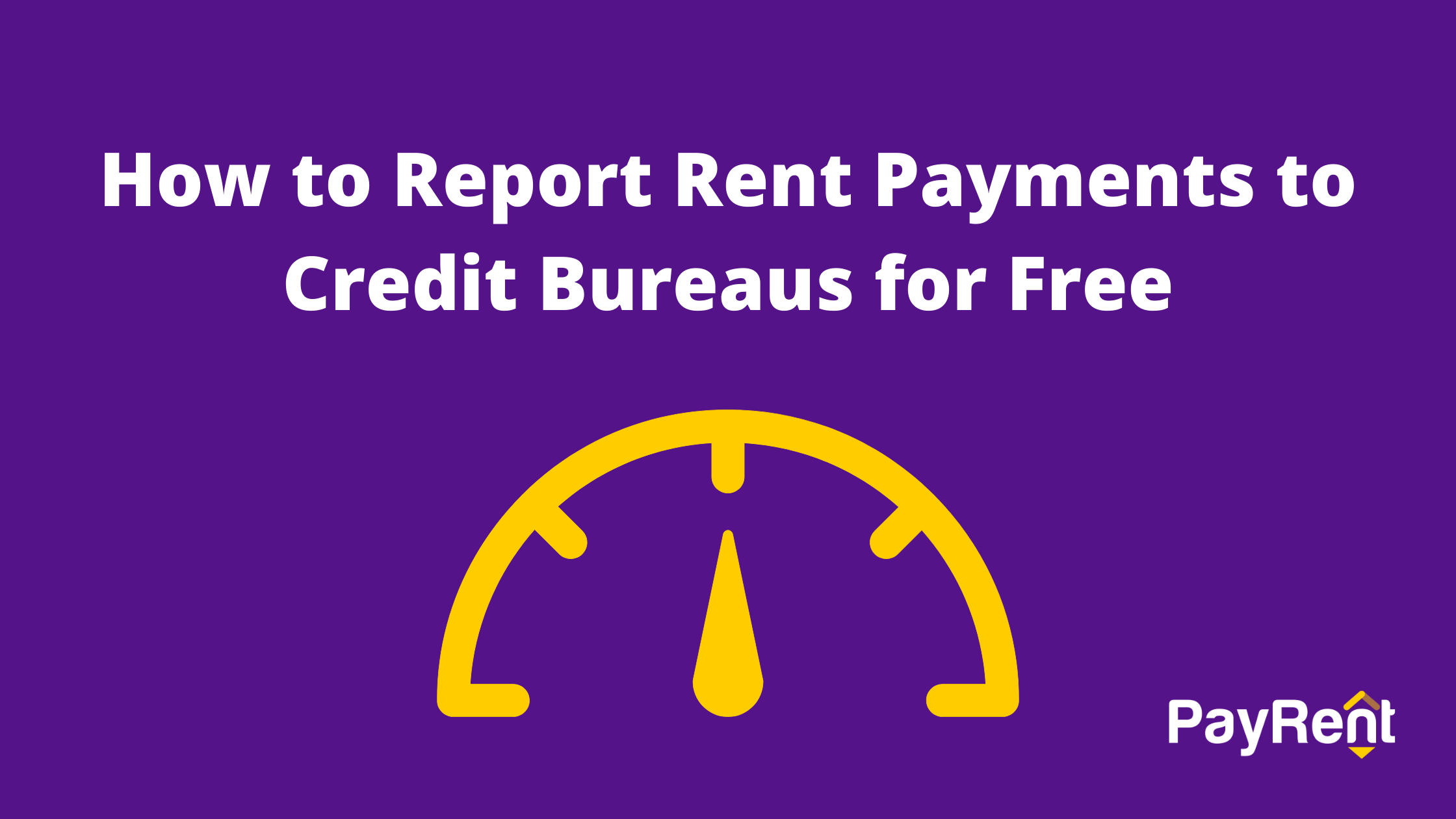It’s not unusual for tenants to spend 30% or more of their income on renting a place to live. Unfortunately, landlords don’t typically report rent payments to the credit bureaus, so renters are losing out on a valuable chance to build their credit. On the other hand, landlords who report rental payments to credit bureaus often see an increase in on-time rent payments, saving them time, money, and an awkward request for late payments.
California is leading the way in the new trend towards reporting rent payments to credit bureaus. In July 2021, the state enacted a new law called California Senate Bill 1157. The bill’s author is hoping to change the dynamic of paying rent for both landlords and renters.
California Senate Bill 1157
So, what exactly does the bill do? Simply stated, California SB 1157 requires operators of multi-family units in California that receive federal, state, or local subsidies to offer each resident in a subsidized apartment home the option of having their rental payments reported to major credit bureaus.
Written by Senator Steven Bradford of California, the bill is intended to assist low-income renters in establishing a credit history. The bill requires landlords of medium to large multi-family housing units to give their tenants the option of reporting rent payments to a major credit bureau.
SB 1157 will require landlords managing assisted housing developments with more than 15 units to report rent to at least one of the national credit bureaus. In addition, any multi-family rental housing development that receives governmental assistance is considered an assisted housing development and will be required to follow the new law for any lease agreements signed after July 1, 2021. Those agreements must include the offer to report rent payments. For leases already in effect, the offer of rent reporting had to be issued by October 1, 2021. The offer must include the following:
- A statement explaining that reporting the tenant’s rental payment information is optional.
- A list of each consumer-reporting agency to which rental payment information will be reported.
- A statement that explains that this reporting includes the good, bad, and the ugly, all of the tenant’s rental payments will be reported, even if payments are late or missed.
- Disclosure of any fees that are charged for reporting.
- Detailed instructions describing how to submit the written election of rent reporting to the landlord by mail.
- A statement that explains that the tenant may opt in to rent reporting at any time following the initial offer by the landlord.
- A statement that the tenant may elect to stop rent credit reporting at any time but that they will not be able to resume rent reporting for at least six months after their election to opt-out.
- Instructions for opting out of reporting rental payment information.
- A signature block that the tenant will sign and date to accept the offer.
When the offer of rent credit reporting is made, the landlord needs to provide the tenant with a self-addressed, stamped envelope to return their written election of rent reporting. SB 1157 is in effect until July 1, 2025, and allows landlords to report FICO 9, FICO 10, and VantageScore 3.0 and 4.0 credit scores.
The base FICO Scores range from 300 to 850, while FICO’s industry-specific scores range from 250 to 900. A score of at least 670 (for FICO®) and 700 (for VantageScore) are generally considered good scores. Consumers with higher credit scores are seen as a safe bet, qualifying them for credit cards, loans, and lower interest rates on major purchases like homes and automobiles.
Costs Associated with Rental Reporting
If a renter opts in to rent reporting, landlords can charge them $10 a month or the actual cost of reporting the rent payment, whichever is less. If the tenant fails to pay the rent reporting fee, the landlord cannot use it as a reason to terminate the lease, nor can they deduct the unpaid fee from the security deposit. If the fee remains unpaid for more than 30 days, the landlord can stop reporting and the tenant will not qualify for rent reporting again for a minimum of six months. The renter can choose to stop the reporting at any time during the lease, but they must do so in writing.
Benefits of Rent Reporting for Tenants
Why would a renter want their rental payment history reported in the first place? Building a history of on-time payments will make them a more attractive candidate to future landlords and help boost their credit scores.
Benefits for Landlords
Reporting on-time payments to credit bureaus can help you build a positive and long-term relationship with your tenants. Plus, you’re providing other landlords with access to information that usually doesn’t show up in credit reports. Less than 1% of credit reports contain any information at all about an applicant’s rental history.
Why Report Rent Payments to Credit Bureaus?
When your tenant pays their rent on time every month, they’re showing a level of financial responsibility that should be rewarded. Sadly, these payments rarely have a positive impact on their credit score because they aren’t reported to the credit bureau. However, you and your tenant can be part of a growing trend that acknowledges the importance of rental history in understanding a future tenant’s total fiscal fitness.
At the opposite ends of the spectrum, you may have tenants that consistently pay their rent late. By reporting frequent late payments or evictions, you may be sparing a future headache for the next landlord. When you report the full file, which is both the positive and negative rental behavior, you may also provide a potential employer with a complete picture of who their applicant really is when they perform their pre-employment background checks.
Landlords who collect rent online with PayRent can use built-in credit reporting to all three major credit reporting agencies: Transunion, Experian, and Equifax. There is no additional cost for rent reporting for landlords or tenants. Because the renter’s “full file” of payments are reported (both the good and bad), they are incentivized to consistently pay rent on time, leading to a more predictable cash flow for landlords. Aside from more consistent payments, many landlords elect to report rent payments as a free service for their tenants.
How to Report Rent to all Three Credit Bureaus
The “big three” credit bureaus, Experian, Equifax, and TransUnion only allow high-volume landlords to report their rental payments directly to the credit bureaus each month. TransUnion, for example, requires that you have at least 100 accounts before reporting tenant data directly to the bureau.
With 500 or fewer units, landlords can sign up with a third-party service that processes rent payments and automatically records them on the tenant’s credit report.
There are several different websites that you can use to report payment information to the credit at least one of the credit bureaus. Each site has a registration process that typically involves setting up a landlord profile before your tenants can have their payments reported. Once your profile is complete, the tenant can register to self-report or have you report payments on their behalf.
The bottom line is that by helping your tenants build their credit history, you can help set them up for success while giving future landlords valuable information that can help them find the most responsible candidates for their properties.
Building RentCred
PayRent reports rent payments to all three credit unions at no additional cost to renters or landlords through their RentCred Program.
RentCred™ is an incentive program for renters that rewards them for consistently paying rent on time through the PayRent App. Renters who consistently pay on time can borrow up to $500 to help them stay current with their rent payment in the event of an emergency. Renters improve their financial health while landlords continue to collect rent on time.
To qualify for special incentives, renters must make on-time payments through the platform a specific number of times to “unlock” RentCred benefits. When a renter makes a minimum of three payments, the credit reporting feature is activated, providing payment reporting to Experian, Equifax, and TransUnion. This is the quickest way to report rental payments to credit bureaus for free.
To opt in to rent reporting, the renter needs to add their birthdate and social security number on the RentCred screen from their tenant portal. Their registration will automatically enable rent reporting when payments are made.
Additionally, when the tenant hits gold status by making more than six payments on time, they can qualify for interest-free emergency loans for rent. Landlords are paid the full rent amount and tenants accept the terms of the loan and set up an installment payment plan to cover the cost over the next six weeks.
You can read more about the RentCred program here: https://www.payrent.com/articles/rentcred-a-reward-program-for-renters/
How to Report Rental Payments to Credit Bureaus for Free
Building a good credit history can be difficult for young tenants just starting out. As a landlord, you can help first-time renters build a positive credit history by reporting their on-time payments. More seasoned tenants may just need an extra boost to help them rebuild their good credit after hitting a rough patch in their lives.
Unless you’re managing a huge number of rental properties, the only way you can provide rental history free to credit bureaus is by signing up with a reputable rent collection service, like PayRent.










